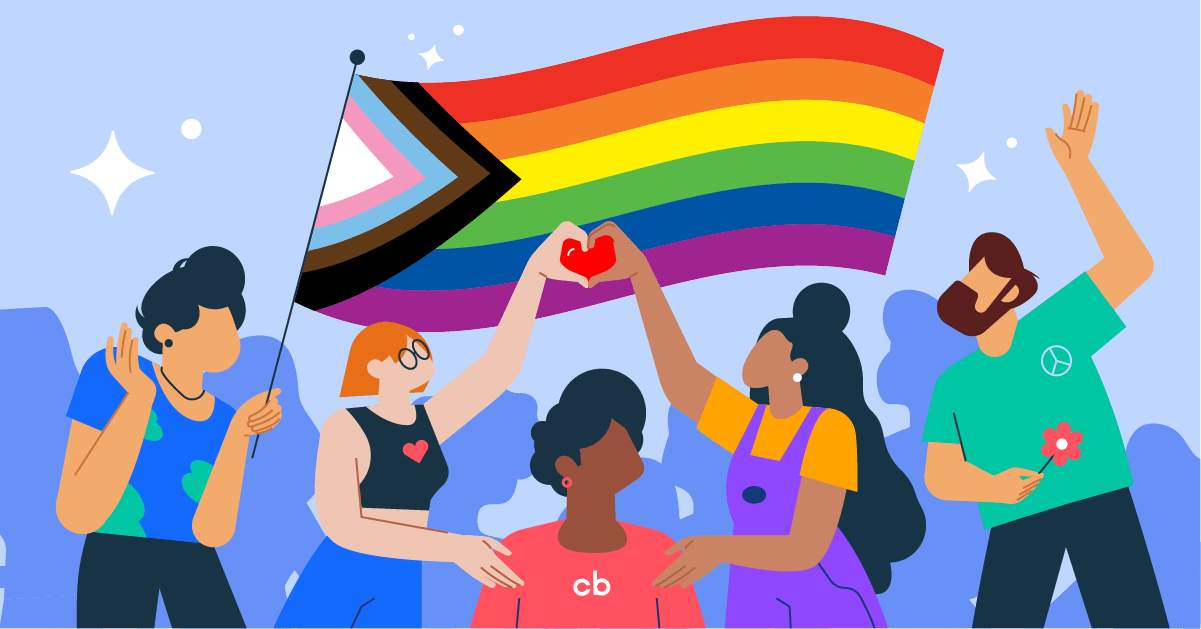I shouldn’t have said that. I should be having more fun. I should definitely be able to cope.
Nah!
The only “should” I’ll allow from now on is that we all should stop using the word should. Shouldn’t we?
Should is such a nagging, overcritical word, setting out such rigid rules for ourselves and others. Perhaps its intention is pure, designed to motivate? After all, there are so many things I should do. I should sort out that cupboard. I should read that book. I should go to the gym every day and it’s obvious it would be good for me.
Has that statement ever motivated anyone though? Not me, not one bit and I haven’t seen the inside of a gym in the last decade. I’m not proud of it but instead of motivating me, the “shoulds” just leave me feeling ashamed and disappointed in myself. The unnecessary pressure of ‘should statements’ just isn’t helpful.

Teresa Lewis explains the connections between ‘should statements’ and anxiety.
We know that setting goals is positive and that’s why should statements don’t seem harmful when we say them. The problem is that we unconsciously add an unspoken part, based on the deep-seated beliefs we hold about ourselves, others, and the world, and this causes a lot of damage. For example; “I should get better grades…” (and then the brain unconsciously adds) ‘but I can’t because I’m a failure‘. Now that is not going to make anyone try harder, it’s just going to leave them feeling hopeless and increase avoidance behaviours.
If our should statements are about others (you should do the washing up; you should drink less) we are usually left feeling disappointed by their failure to meet our expectations. Cue resentment which can destroy relationships.
How do we get around this? In the long term, we can work on challenging these deep-seated beliefs. Question where these beliefs are from, why we hold them, and if they benefit us. Is there any evidence for them?
In the short term, we can change how we speak to ourselves. Reframing language and focusing on what’s important to us without the emotional baggage. Start by removing any guilt-laden words that cause shame; such as ‘should’, ‘ought’, and ‘must’, with positive phrases such as; ‘I prefer it when’, ‘I feel good about myself when’, ‘I want to’, ‘It’s important to me that’. This small change in language creates a subtle but important shift that helps to motivate without shame.
Instead of: ‘I should go to the gym every day’, try: ‘It would be nice if I went to the gym every day’.
The reality is, I’m often tired after work and have other commitments. I feel good when I work out, so I’d like to go at least once a week if I get the opportunity.
These phrases can also be used instead of our should statements for others. Using statements beginning with ‘I’ instead of statements beginning with ‘you’, is less likely to make the person feel attacked and become defensive. ‘You’ statements often seem accusatory and lead to arguments, ‘I’ statements take responsibility for how we are thinking and feeling, without blaming anyone.
Instead of: ‘You should have called me earlier’.
Try: ‘I prefer it when you let me know you’re going to be late, so I don’t feel anxious’.
I think you should try it! 😊
By Rebecca Collins
Disability and Wellbeing Advisor

